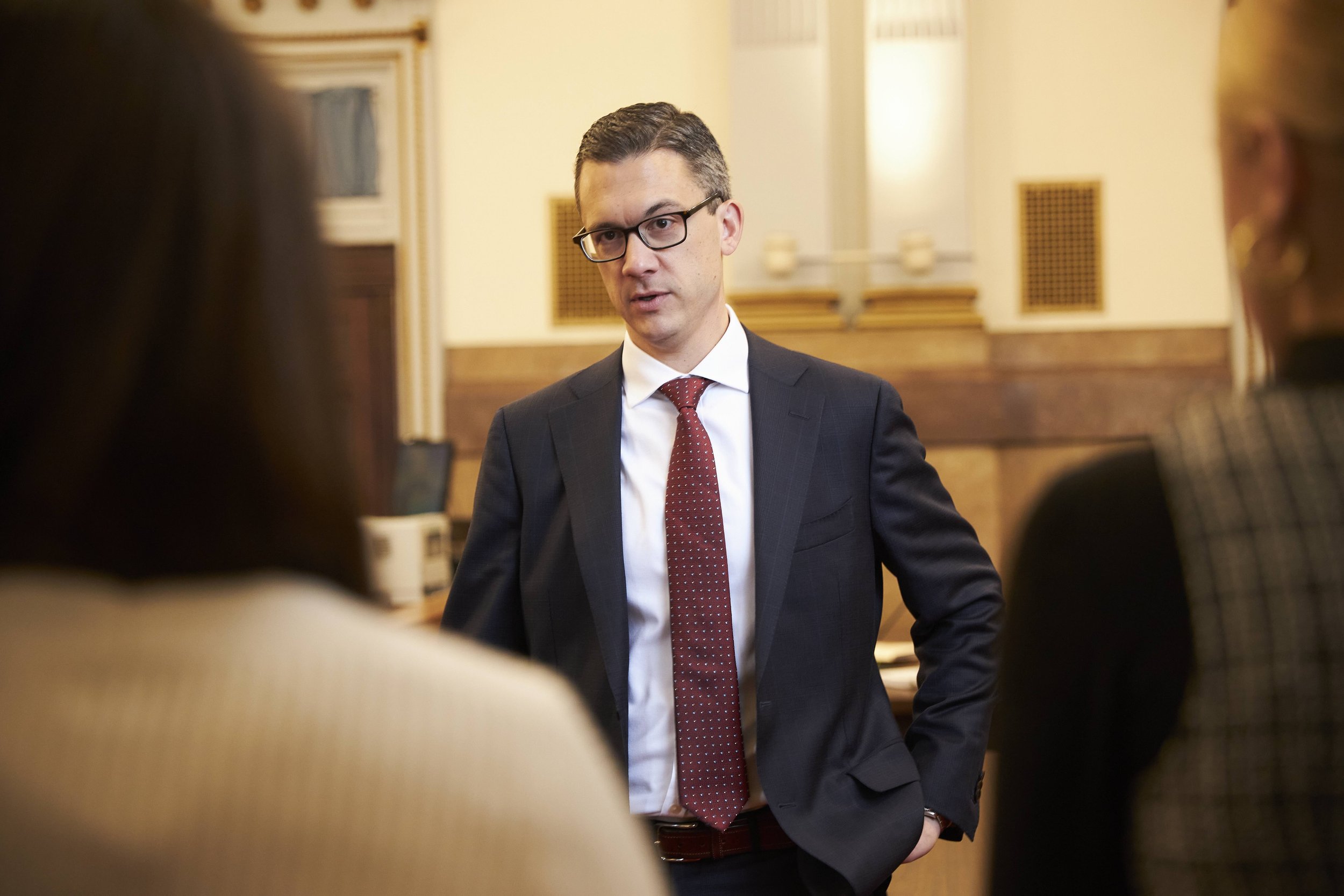Comprehending the Duty of a Post-Conviction Attorney in Looking For Justice After a Criminal Sentence
In the facility landscape of post-conviction legal proceedings, the role of a post-conviction attorney is crucial in browsing the course to justice after a criminal conviction - main federal habeas corpus attorneys. As the search of justice extends past the boundaries of initial procedures, the function of a post-conviction lawyer arises as a beacon of hope for those seeking to fix injustices and reclaim their legal rights within the lawful system.
Post-Conviction Legal representative's Investigatory Work
Post-conviction lawyers engage in precise investigative work to uncover brand-new evidence, step-by-step errors, or misbehavior that could possibly result in reversing a sentence. This investigative phase is vital in the post-conviction procedure as it intends to determine any neglected information or lawful errors that might have impacted the end result of the preliminary trial. Post-conviction attorneys look into instance documents, witness statements, and lawful documents with a fine-tooth comb, looking for any kind of disparities or irregularities that could be grounds for charm.
Through extensive investigation, post-conviction attorneys aim to drop light on prospective injustices that might have happened throughout the initial trial. By scrutinizing every element of the lawful procedures, post-conviction attorneys work tirelessly to uncover any kind of variables that may have affected the judgment.
Crafting Appeals and Petitions
In the pursuit of justice after a conviction, knowledgeable attorneys diligently craft allures and petitions to present engaging arguments for the reconsideration of legal decisions. Crafting allures and requests calls for a deep understanding of the lawful system, attention to information, and strategic reasoning. Post-conviction lawyers analyze trial documents, identify possible errors or infractions of civil liberties, and create legal disagreements to test the sentence or sentence.
When crafting a charm, legal representatives focus on highlighting lawful errors that might have affected the outcome of the situation. They investigate instance regulation, laws, and lawful criteria to support their debates. Applications, on the other hand, might involve presenting new proof that was not available throughout the trial or demonstrating changes in the law that require a testimonial of the sentence.
In addition, post-conviction lawyers must abide by stringent procedural rules and deadlines when submitting appeals and applications. They should provide their disagreements plainly and persuasively to persuade the court to approve alleviation to their clients. With careful crafting of charms and requests, post-conviction lawyers strive to secure justice for people who have actually been wrongfully founded guilty or unjustly sentenced.

Pursuing Post-Conviction Relief
Seeking relief after a sentence requires a calculated and diligent technique by experienced legal professionals. Post-conviction relief incorporates a variety of lawful mechanisms created to challenge the legitimacy of a sentence or sentence (habeas corpus maryland). These avenues consist of filing activities for a new test, going after charms, seeking writs of habeas corpus, and presenting newly discovered evidence. Post-conviction lawyers play a vital duty in navigating these complex treatments, ensuring that all legal alternatives are discovered to remedy oppressions that might have taken place during the test or sentencing stage.
One usual form of post-conviction alleviation is submitting a request for post-conviction relief, normally based on cases of inadequate aid of advice, prosecutorial transgression, recently uncovered proof, or constitutional infractions. Experienced post-conviction lawyers possess the skills and understanding needed to identify practical legal claims, perform investigations, and existing compelling debates to secure alleviation for their clients.
Using Forensic Evidence
When testing a sentence or sentence, the strategic use of forensic evidence can be an effective device in post-conviction lawful proceedings. Forensic proof encompasses a vast array of scientific strategies used to examine crimes and develop realities in court. Post-conviction lawyers can leverage forensic proof to challenge the credibility of convictions by presenting new scientific searchings for that were not available during the original trial.

Taking Part In Sentence Alterations
Post-conviction attorneys may discover the opportunity of sentence modifications as a legal avenue to attend to disproportionate or unjust find out sentences passed on in criminal cases. Sentence modifications entail seeking adjustments to the regards to an accused's sentence after a conviction has actually occurred. These alterations can consist of reducing the length of a sentence, altering the type of penalty imposed, or discovering alternate sentencing choices.
Post-conviction attorneys can go after sentence alterations with numerous legal mechanisms, such as filing motions for sentence reduction, appealing for compassionate launch, or discussing plea bargains for decreased sentences. They have to carefully assess the conditions of the situation, assess the lawful grounds for seeking a modification, and existing engaging disagreements to the court supporting the demand for a revised sentence.
Engaging in sentence modifications calls for a detailed understanding of criminal regulation, sentencing standards, and the particular procedures involved in looking for post-conviction alleviation. Post-conviction attorneys play a crucial duty in advocating for fair and just end results by tough sentences that are unduly rough or do not straighten with the concepts of justice.
Conclusion
Finally, the role of a post-conviction legal representative is critical in seeking justice after a criminal sentence. Via investigative work, crafting appeals and petitions, going after post-conviction alleviation, making use of forensic evidence, and participating in sentence adjustments, these attorneys play a vital duty in promoting for their clients and guaranteeing that their legal rights are supported within the criminal justice system. Their commitment and expertise are necessary in navigating the complexities of post-conviction proceedings and accomplishing a reasonable outcome for individuals dealing with criminal sentences.